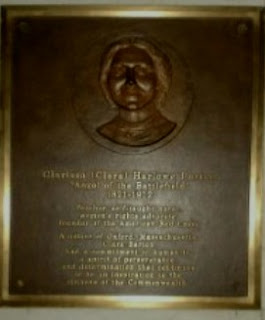Play about Democratic Republic of Congo uncovers natural resource conflict
In January, I saw an excellent play called Ruined by Lynn Nottage at the Boston University Theater. The Pulitzer Prize winning play premiered in New York City in 1999. The play depicts the lives of a group of women who work at a bar/club in a small mining town in the Democratic Republic of Congo (DRC). The women struggle with the ongoing social unrest in the country. Rape, violence, and government corruption are part of their daily lives. The acting in the play is brilliant and it makes the viewer think about themes such as gender roles, militarism, poverty, and natural resource exploitation.
The DRC has plentiful water systems and forest reserves. Many different animals are protected within this diverse ecosystem. In addition to its wildlife, Congo has abundant natural resources. The country contains about 80% of the world’s coltan reserves, which is used in cell phones, digital cameras, laptop computers, and PlayStations. It is estimated that $1 million worth of coltan per day is exported from the Congo. The miners who labor to find coltan receive paltry compensation for their work, while warlords in eastern Congo reap the benefits of forced labor.
The DRC’s abundant resources have caused the people of this bountiful land to wage armed conflicts. The DRC has endured two civil wars over the past fifteen years. The United Nations has acknowledged the wars in the Democratic Republic of Congo as the deadliest world conflict since World War II. By 2007, an estimated 5.4 million people died as a result of the conflict. These deaths included those from disease, violence, and starvation.
Ruined poses several questions to not only the leaders of the DRC but also to international community. How can the Congolese government more adequately protect its citizens from rape and war? What role (if any) do consumers of technological products play in ensuring the safety of the people who help to create these products? Do developed nations have any responsibility in obtaining fair compensation for coltan miners?
I think Liesl Tommy, the director of Ruined, speaks eloquently about the plight of the Congolese citizens who are caught in the midst of a natural resource war and those who benefit from the work of those in forced labor camps.
Tommy says: “In many ways the war in the Congo is not so far away from us… We don’t have flying cars, but we are massive consumers of all kinds of futuristic electronics – gadgets that improve our lives in lots of ways, but that also have consequences – good and bad – in other parts of the world. I believe our great cause as human beings in this century is to continue to find compassion and to understand that people everywhere are interconnected. We must, because we are them. And they are us.”


Comments
Post a Comment